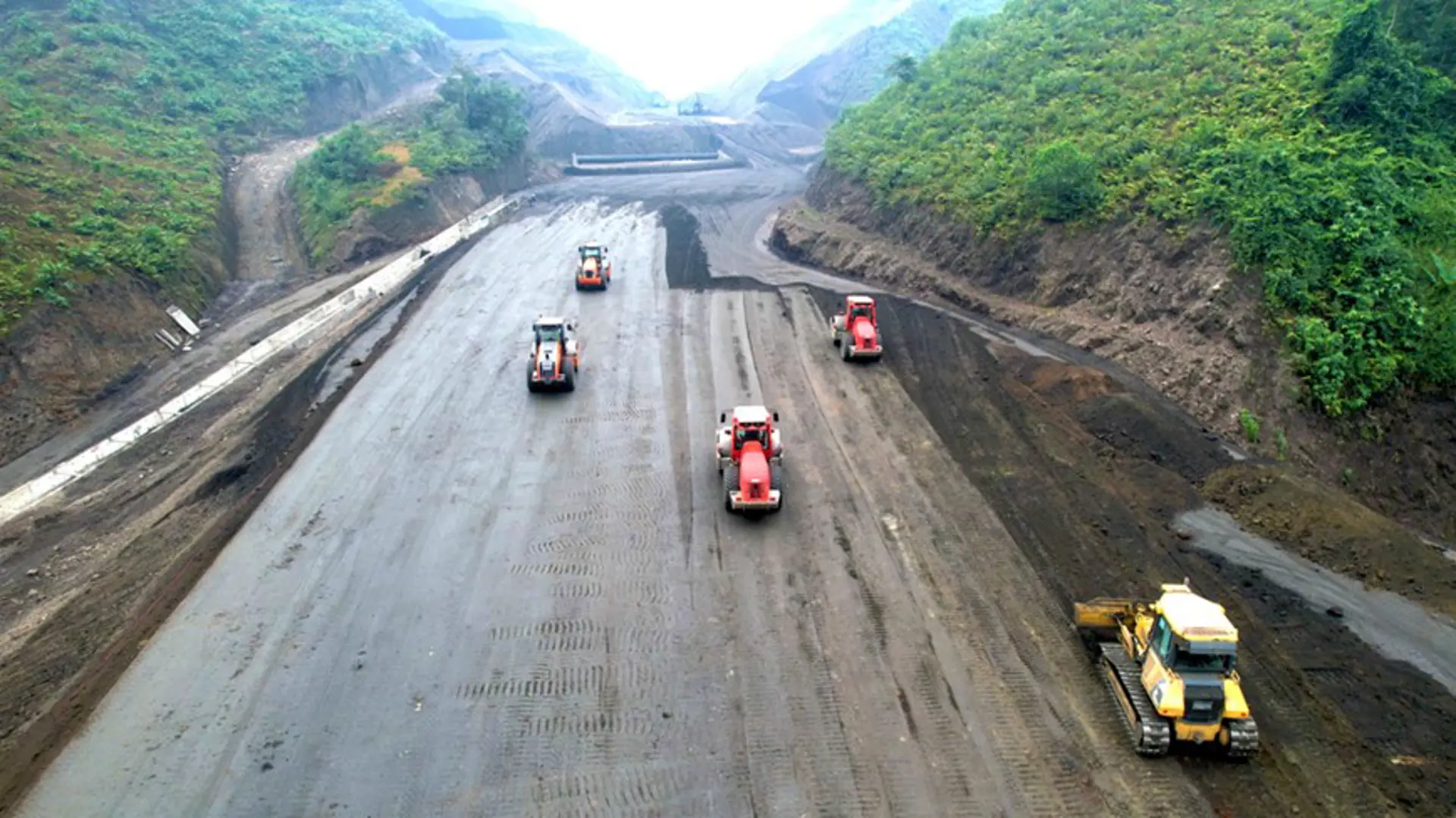Bai Bang Paper Mill: Outstanding symbol of Vietnam-Sweden relations
The paper factory at once eased domestic demand and helped Vietnam save a large amount of money for imports in the post-war reconstruction.
The 40th anniversary of the inauguration of Bai Bang Paper Mill (1982-2022) was commemorated in a special way by welcoming an honorable guest from Sweden, the country which funded the project that becomes one of the biggest and most outstanding symbols of Vietnam-Sweden relations.
| VINAPACO General Director Nguyen Duc Viet (L) and Deputy Minister for Foreign Affairs of Sweden Robert Rydberg in Phu Tho on June 10. Photos: Embassy of Sweden in Hanoi |
Bai Bang Paper Mill, which is now renamed Vietnam Paper Corporation (VINAPACO), is one of the destinations in the three-day visit to Vietnam by Deputy Minister for Foreign Affairs of Sweden Robert Rydberg.
During the trip to Bai Bang, the Swedish delegation explored prospects for renewed cooperation in the field of social dialogue in the workplace.
Construction of the paper mill, which is located in Phu Ninh District, Phu Tho Province, kicked off in 1974 with an investment worth SEK2.5 billion (US$415 million at that time) raised from peace-loving Swedes during the Vietnam War.
Sweden is known for wood processing and paper manufacturing, one of its economic strengths.
After eight years of construction, the factory came into operation to meet domestic demand, saving a large amount of money from importing this essential goods.
Speaking after landing in Hanoi, Deputy Minister Rydberg said: “With our historic ties, Vietnam is a good friend and an important partner for Sweden within the ASEAN region.”
Rydberg said he and his counterparts in Hanoi will exchange views on current affairs while addressing common challenges such as post-pandemic green recovery, energy crisis, and climate.
| Swedish Ambassador to Vietnam Ann Måwe in the visit to the paper mill on June 10. |
In 1969, Sweden became the first Western country to establish diplomatic relations with Vietnam. Over the past 53 years, Sweden and Vietnam have been friends and partners, even in the most difficult times.
After establishing diplomatic relations with Vietnam, Sweden continues extending financial support to the country. From 1970-to 1990, the Nordic country provided roughly $950 million and $230 million for 1990-1998, mostly non-refundable, to help Vietnam build essential infrastructure, industrial facilities, energy, economic restructuring, legal reforms, and manpower training.
Its assistance continues to expand with additional funding over the past years to research, education, health, biotechnology, sustainable rural development, agroforestry, science, and technology.
Mutual trust today is based on an ongoing discussion, regular dialogues, equal partnership, and innovative co-creation for the benefit of the two nations and peoples.
During his visit, the Deputy Minister held bilateral consultation with his Vietnamese counterpart Ha Kim Ngoc, Deputy Minister of Foreign Affairs of Vietnam to discuss issues of common interests.
On June 10, he also met a local audience consisting of students and researchers, government representatives, experts, and other interested friends at the Diplomatic Academy of Vietnam (DAV) where he addressed among other things, Swedish policy, the Swedish and European security situation and the Sweden-Vietnam relationships going forward.
Regarding economic ties, there are already over 60 Swedish companies established in Vietnam. These companies work closely with local suppliers and partners to provide cutting-edge innovations, sustainable solutions, and products, in line with Vietnam’s green growth strategy and aspiration to become a more innovative nation.
The companies include ABB, Astra Zeneca, Atlas Copco, Electrolux, Ericsson, H&M, Hestra Gloves, IKEA, Oriflame, SKF, Tetra Pak, Volvo Buses and Volvo Cars, among others.
Sweden-Vietnam bilateral trade has maintained a stable growth rate in recent years. In 2021, the total trade turnover reached $1.5 billion.

Sweden, Vietnam share similarities and challenges in energy sector
The two countries have a long history of cooperation in the energy sector.

Sweden proposes US$2-billion commercial loan for aviation projects in Vietnam
The Ministry of Transport would review this loan and report to the government.

Sweden-based Tetra Pak partners with local firm to promote recycling of used cartons
The investment is considered significant, as it is the first time a foreign packaging solutions company has invested in promoting the capacity of Vietnam’s nascent recycling industry.

























